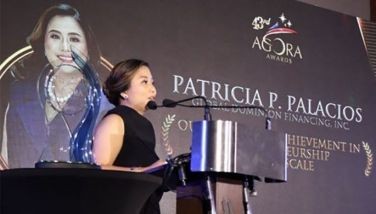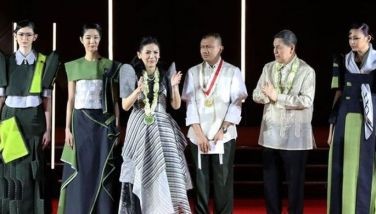Leveling the playing field: Tax controls on political efficacy
Political efficacy, or the belief of a citizen that his or her individual action can impact political affairs, is often regarded as a measure of a sustainable civil society. Accordingly, it is proposed the health and stability of a State is contingent, among others, on how democratized the arena is for political participation. Put into context, the electoral process is regarded as the most robust avenue for the public to demonstrate its collective political efficacy. This is because elections offer the citizens the important chance to engineer the political landscape for the purpose, hopefully, of elevating their overall state of affairs. An individual’s involvement in the process, however, is not limited to the actual casting of votes. It can also be manifested in the campaign process where the voters actively participate in activities which support his or her championed candidate. This may be in the form of taking part in political discussions, rallying support, or in making financial contributions to a candidate’s campaign.
Nonetheless, the variation of individual interests motivating “which side to pick” calls into question if in reality, political participation is accessible for everyone. For instance, on the eve of the 2016 presidential elections, considering that launching a nationwide campaign requires a considerable amount of financing, individuals or entities who can shell out more monetary contributions often find themselves in an advantageous position as far as access to their candidate of choice is concerned.
Correlatively, should their presidential bet clinch the desired office, there is reason to speculate that these deep-pocketed personalities may push for quid pro quo arrangements advancing their individual agendas, which may not always be aligned with the interest of the many.
In as much as political contributions may be argued as a form of free speech, equal importance should also be given to leveling the playing field when it comes to the campaign process. This is to tilt the balance of political influence away from our goal of an actualized representative democracy. As such, reasonable controls are needed to be in place so as, borrowing the words of the US Supreme Court, to “prevent corruption and the appearance of corruption spawned by the real or imagined coercive influence of large financial contributions on candidates’ positions and on their actions if elected to office”.
On this note, in order to enhance the potency of the current limits on election spending as provided under our election laws, our tax rules have also adopted measures to regulate campaign contributions for the purpose of ensuring transparency, accountability and the equalization of the relative ability of the electorate to affect the outcome of the elections. Considering the 2016 National Elections are underway, it makes sense to be reminded of these policies.
In Revenue Regulations (RR) No. 07-2011 dated Feb. 16, 2011, the Bureau of Internal Revenue (BIR) clarified that while campaign contributions are not considered as taxable income of the candidate to whom they were given (as such contributions were given not for the expenditure/enrichment of the concerned candidate but for the purpose of utilizing the same for campaign purposes), this exclusion policy will only apply if the said contributions are actually utilized in the campaign. Accordingly, the unutilized campaign contributions, which are the campaign contributions net of the campaign expenditures, will be subject to income tax required to be reported by the candidate in his Income Tax Return filed for the subject taxable year.
We recall that under Batas Pambansa Blg. 881 dated Aug. 4, 1989, otherwise known as the Omnibus Election Code of the Philippines, a Statement of Contributions and Expenditures is required to be submitted to the Commission on Elections (Comelec), by every candidate and treasurer of political parties. In this connection, RR No. 07-2011 provides for another condition for availing the above exclusion in that, any candidates – winning or losing – who fails to file the said Statement of Contributions and Expenditures, will be prevented from claiming such expenditures as deductions from his/her campaign contributions and will subject the entire amount of contributions to income tax.
Furthermore, RR No. 08-2009 dated Oct. 22, 2009, constitutes all candidates and political parties as withholding agents for the purpose of withholding the creditable withholding tax (CWT) at the rate of five percent due on all their income payments made as campaign expenditures. In the same vein, all individuals and juridical persons are also mandated to withhold 5% CWT on all their purchases of goods and services intended to be given as campaign contribution to political parties and candidates.
While the BIR has yet to issue specific guidelines for the corresponding compliance requirements, it makes sense to refer to Revenue Memorandum Circular (RMC) No. 48-2013 dated 28 June 2013, which provided for the tax compliance reminders for the 2013 Midterm Elections, as the BIR may most likely still adopt the same. In the said RMC, the 5% CWT must be reported to the BIR using the BIR Form No. 1601-E and remitted through the authorized agent banks or Revenue Collection Officers under the jurisdiction of the BIR office where the withholding agent is registered. As withholding agents, they are also required to attach the Monthly Alphalist of Payees.
In addition, they are also required to file an Annual Information Return of Creditable Taxes Withheld (Expanded)/Income Payments Exempt from Withholding Tax (BIR Form No. 1604E) as well as the Statement of Contributions and Expenditures duly stamped “Received” by the COMELEC.
Note that under this RMC, the BIR cautioned that campaign expenses from which the above 5% CWT were not deducted, remitted or reported as therein required, will not be considered utilized campaign funds. As a result, they will be treated as taxable income of the candidate concerned.
With respect to the disclosure duties of candidates, RMC No. 15-2013 dated 12 February 2013, implemented COMELEC Resolution No. 9476, which imposed upon every candidate, treasurer of the party, and person acting under authority of that candidate or treasurer the following duties:
To issue a receipt for every contribution received, and to obtain a receipt stating the particulars of the expenditure made;
To keep detailed, full, and accurate records of all contributions received and expenditures incurred; and
To preserve the said records for at least three (3) years after the holding of the election.
To implement the above, RMC No. 15-2013 makes it a requirement for candidates to register as withholding agents, register their books of accounts and other accounting records, and register their official receipts, with the RDO having jurisdiction over the political subdivision where they are seeking election, or if inapplicable, where their principal address or registered address may be. In the case of political parties, they are instructed to register with the RDO having jurisdiction over their Head Office or Principal Office.
It is also important to note that while under our election laws, political contributions are exempted from donor’s tax, Section 13 of Republic Act No. 7166 dated 26 November 1991, limits the exemption to those contributions which are reported to the COMELEC. Therefore, any contributions not properly disclosed in the required manner, may potentially be the subject of an assessment for deficiency donor’s tax.
In view of the exacting nature of the foregoing requirements, it is the aspiration to mitigate if not completely eliminate, the tendency of the affluent minority to push for quid pro quo arrangements catering to their own interests. However, while these structures promise the fostering of an election based on merit and not machinery, the attainment of this goal will still ultimately hinge on how proper the enforcement of these measures will be.
In the grand scheme of things, the ideal state of affairs is where political efficacy is strong on all levels of the society. This is achievable provided that political empowerment is decentralized away from the modern-day plutocrats and devolved as much as possible, to the grassroots level of our nation. For that reason, while gratitude remains to be a desirable trait deeply rooted in our Filipino culture, our candidates should conscientiously treat every vote casted or support given in their favor not as an opportunity to breed a sense of being beholden, but rather as a challenge to mold themselves as the kind of leaders that our country needs.
Michael Angelo D. Adrid is a Supervisor from the Tax Group of KPMG R.G. Manabat & Co. (KPMG RGM&Co.), the Philippine member firm of KPMG International. KPMG RGM&Co. has been recognized as a Tier 1 tax practice, Tier 1 transfer pricing practice and Tier 1 leading tax transactional firm in the Philippines by the International Tax Review.
This article is for general information purposes only and should not be considered as professional advice to a specific issue or entity.
The view and opinions expressed herein are those of the author and do not necessarily represent the views and opinions of KPMG International or KPMG RGM&Co. For comments or inquiries, please email ph-inquiry@kpmg.com or rgmanabat@kpmg.com.
KPMG R.G. Manabat & Co. will host a one-day seminar on 28 January 2016 in Makati City. Be updated with the most recent tax and corporate laws, cases, regulations and issuances of various government agencies. Details and invites will be sent subsequently. The seminar will include CPE credits.
Interested parties can call (02) 885-7000 local 768 or 429.
For more information on KPMG in the Philippines, you may visit www.kpmg.com.ph.
- Latest
- Trending























